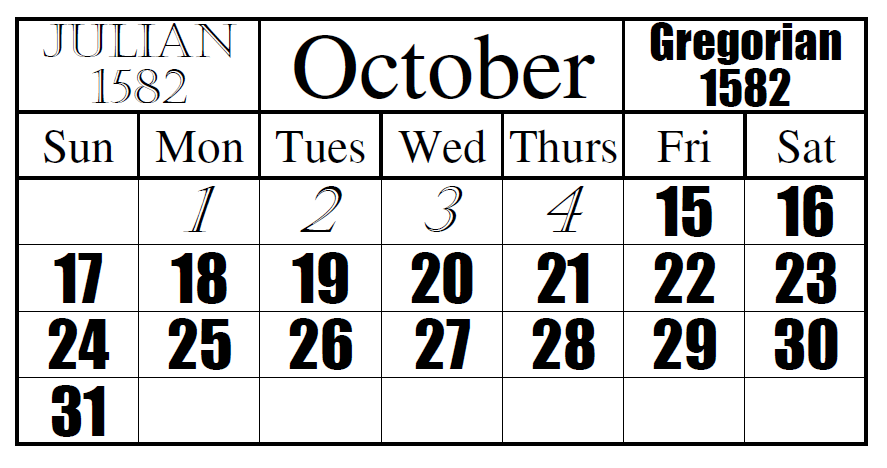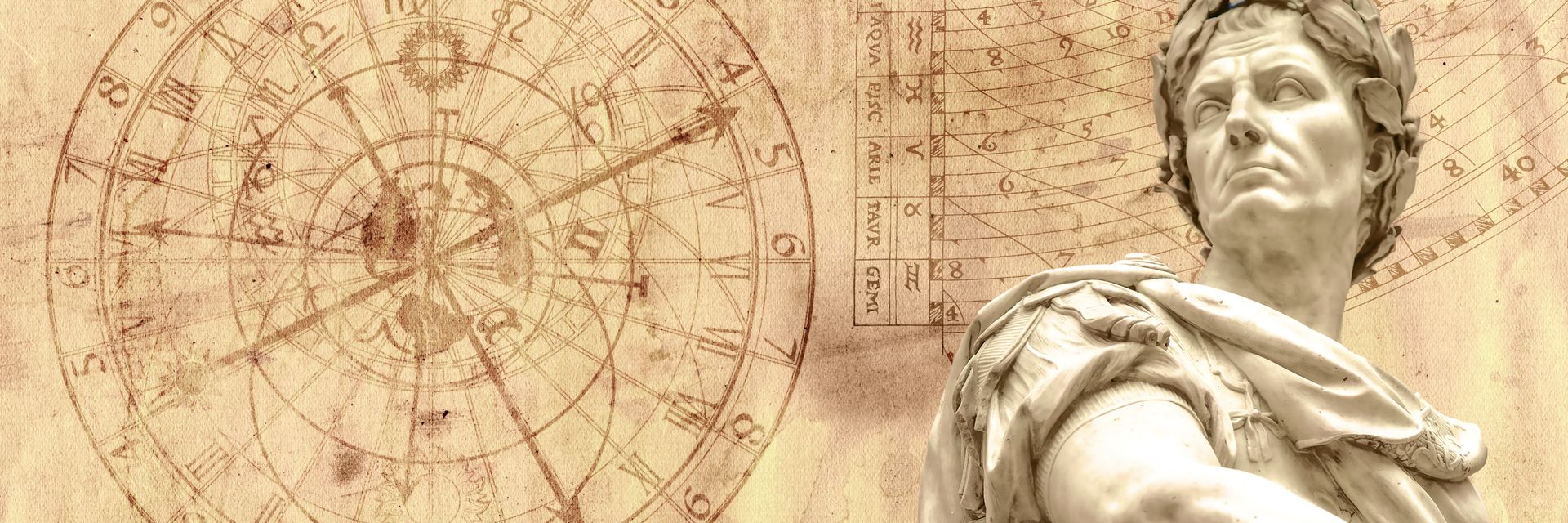The Roman calendar needed a makeover. Julius Caesar and Sosigenes of Alexandria created the Julian calendar, which marked time for over 1,600 years.
◊
When you think of Julius Caesar, you might first think of his bloody assassination (et tu, Brute?), possibly followed by his military conquests and ruthless political maneuvers to achieve supreme power as Dictator of Rome. However, in addition to inspiring that Shakespeare play many of us read in 10th grade, Caesar’s influence also left an indelible mark on our perception of time itself through the Julian calendar.
Adopted in 45 BCE, the Julian calendar was a groundbreaking innovation that served as the predominant calendar in Western civilization for over 1,600 years. Then it was replaced for most purposes by the Gregorian calendar, but the Julian system continues to be used today in certain contexts, such as the observance of Eastern Orthodox holidays.
For a fascinating account of the life and death of Julius Caesar, check out the MagellanTV documentary Julius Caesar with Mary Beard.
Fixing a Problem: The Genesis of the Julian Calendar
Before the Julian calendar, Rome operated under a lunisolar system known as the Roman calendar. This calendar was notoriously imprecise, requiring a priestly class known as the pontifices to add days or even months to reconcile the lunar cycles with the solar year. The system was fraught with inefficiency and was subject to manipulation for political ends. No stranger to political machinations, Caesar, during his stint as Pontifex Maximus (the chief high priest of the Roman religion) recognized the inadequacy of the existing system.
In 46 BCE, Caesar initiated a comprehensive reform with the aid of the Alexandrian astronomer Sosigenes. The new system was revolutionary in its simplicity – it ditched the lunar cycle in favor of a completely solar-based system. Using it, the year was fixed at 365.25 days, divided into twelve months. To account for the fractional day, a leap year with an extra day was added every four years.
The Roman month Quintilis, the birth month of Julius Caesar, was renamed July following his assassination in 44 BCE.
Immediate Impact and Lasting Legacy of the Julian Calendar
The introduction of the Julian calendar was part of Caesar’s broader attempt to enforce order and regularity in Roman life. It provided an unprecedented level of accuracy and uniformity, streamlining everything from agricultural cycles to religious festivals. The calendar quickly gained traction and was adopted not just in Rome but also in all its provinces, effectively synchronizing the empire’s vast territories for the first time.
Despite its remarkable improvement on previous measurements of time, the Julian calendar was not perfect. In reality, the actual length of the solar year is about 365.2422 days, making the Julian year 11 minutes longer. Over centuries, those few minutes per year really began to add up. So, the discrepancy was corrected in October 1582 by Pope Gregory XIII with the introduction of the Gregorian calendar, which is used by most of the world today.

(Credit: Asmdemon, via Wikimedia Commons)
Julius Caesar’s contributions to history were varied, but it might well be that his most enduring legacy is the Julian calendar. This revolutionary advance influenced civilizations for millennia, standardizing agricultural, religious, and civic activities. Caesar may have met an untimely end, but his influence on our understanding of time remains, well, timeless.
Ω
Title Image: Julius Caesar statue, via Wikimedia Commons (foreground); Adobe Stock (background)

